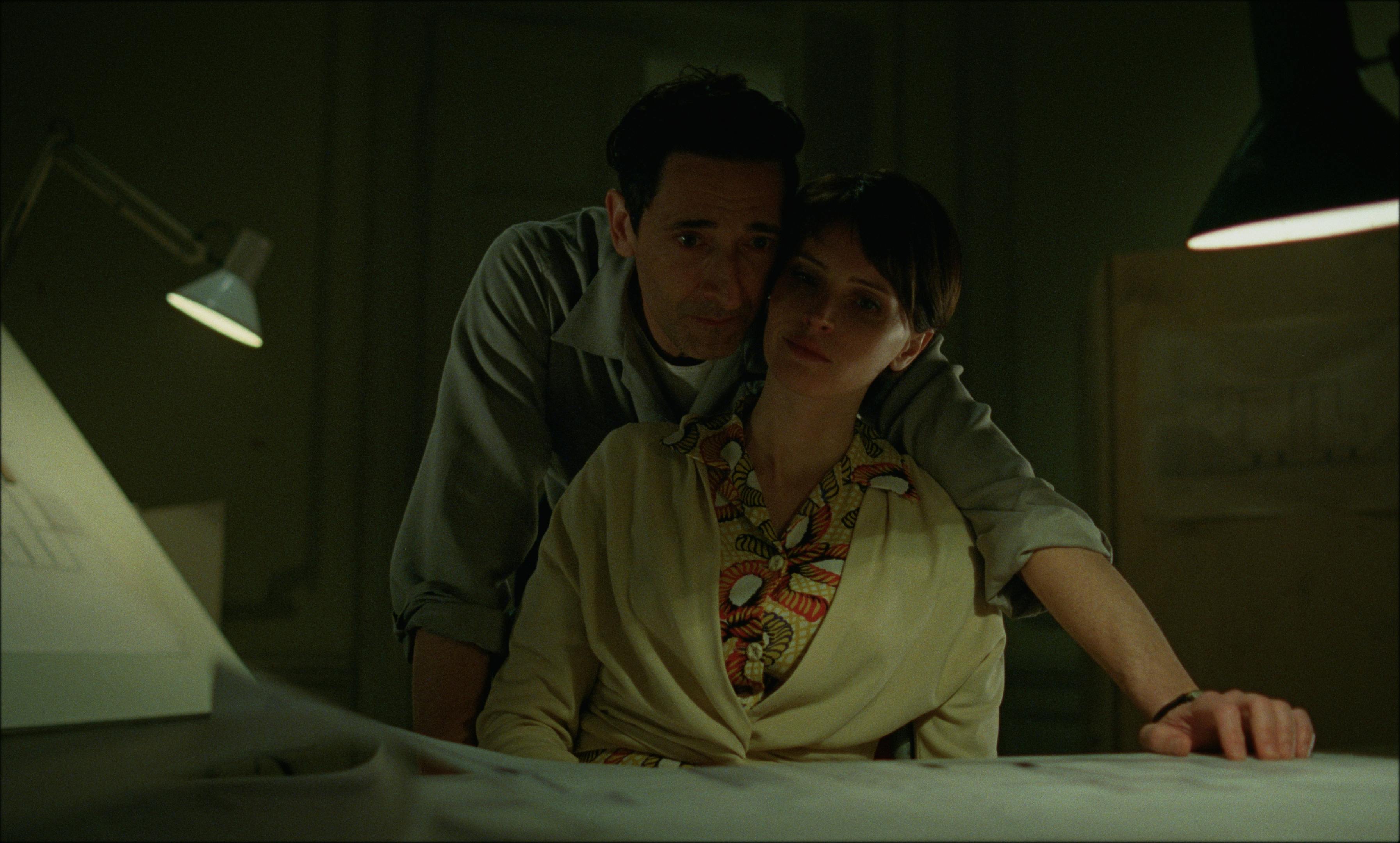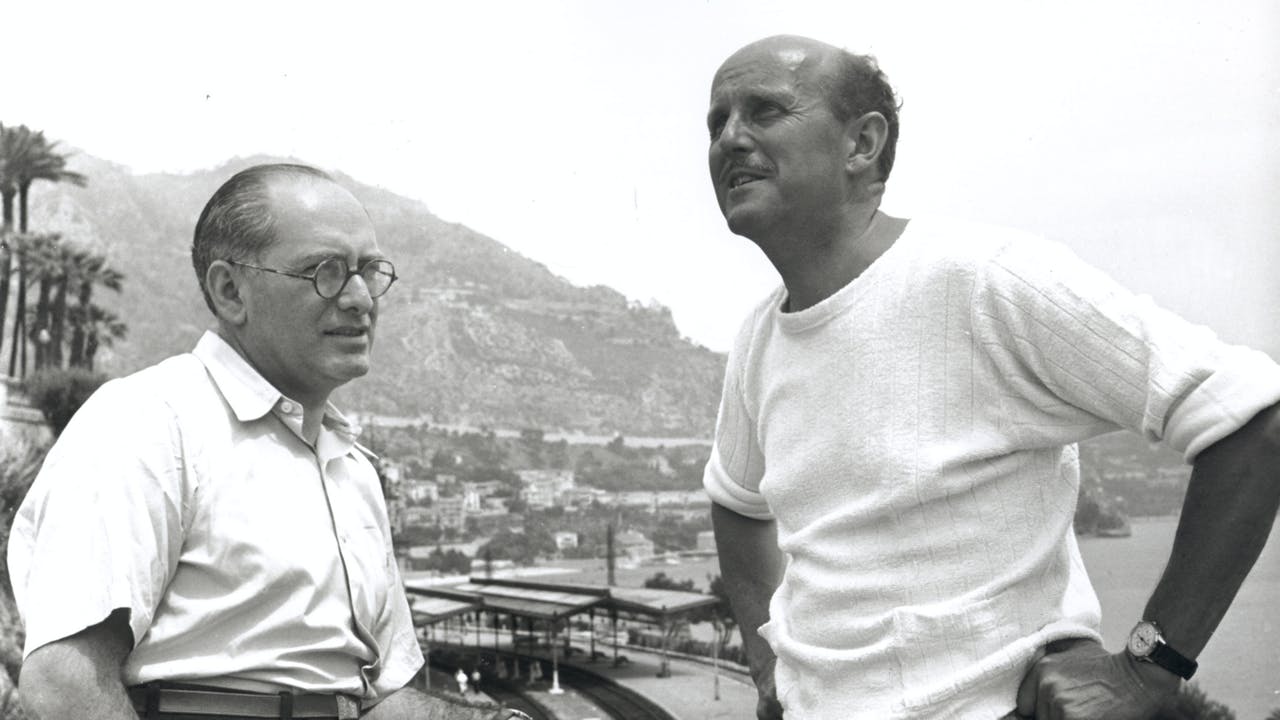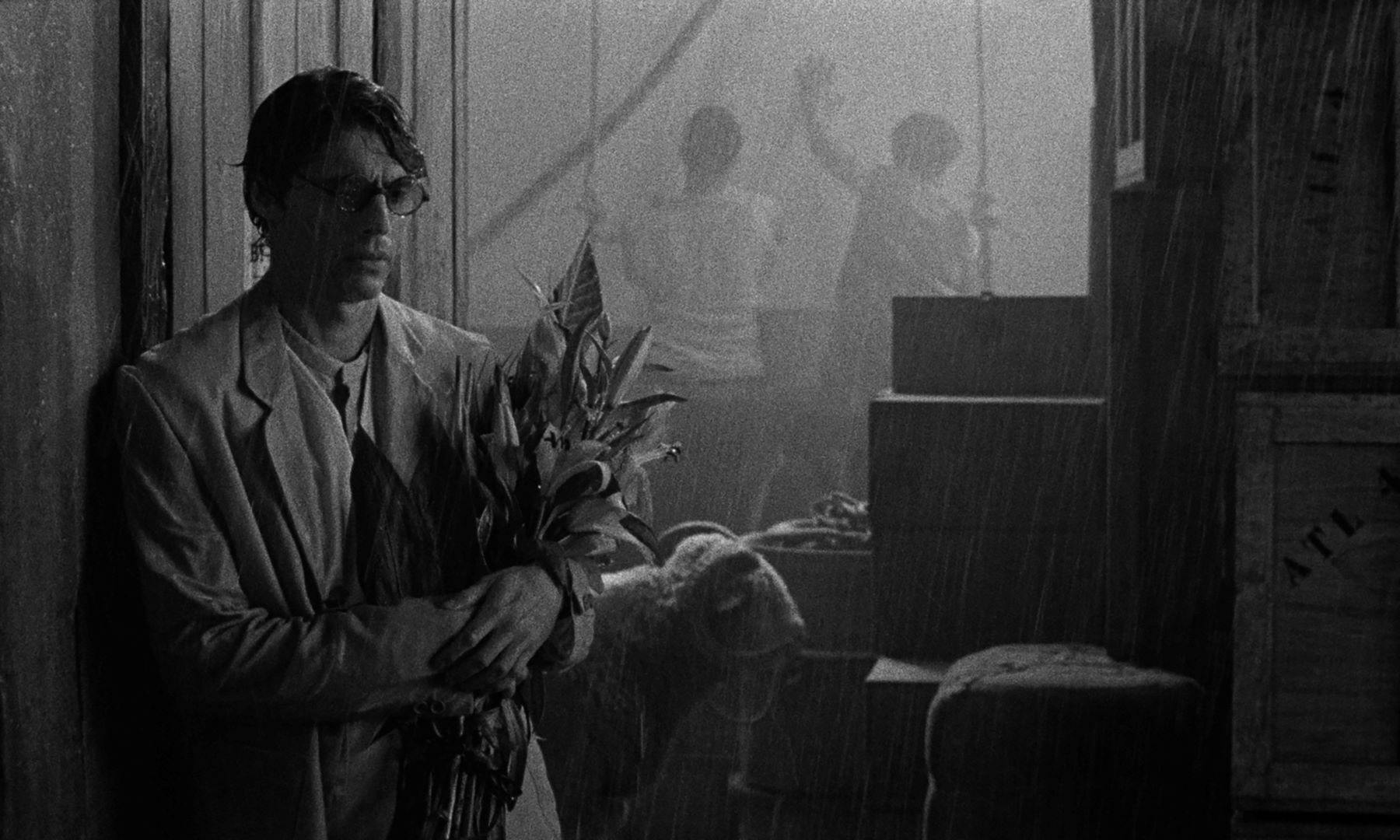It’s difficult to sit down for The Brutalist without expectation. So much about director Brady Corbet’s latest feature presents itself as a film that demands to be taken seriously. Shot in Vista-Vision (think mid-century IMAX) and projected on 70mm film, its format is meant to evoke the post-World War II era and the grand epics of the studio system’s golden age. Its over three and a half hour runtime includes an overture and intermission (complete with countdown clock) that insists “you’re gonna need a breather to handle this big boy.” And the thing is, you kinda do but not really.
Corbet has proved himself a filmmaker with vision and a point-of-view that elicit style and intrigue. He paints portraits of artists who lose themselves in their creativity and The Brutalist is his grandest canvas yet. His distinctive voice is confident and its elegance brings a lot to the table but can only provide so much. Despite its ambition and demeanor, The Brutalist can’t quite live up to its imperial promise but I’m sure glad it exists.
A frenetic trek through a crowded steamer ends with a skewed view of the Statue of Liberty welcomes László Toth (Adrien Brody, who will be on awards ballots all season for his performance) to America, an inauspicious sign of things to come for the Hungarian architect, whose wife and niece are stuck in Europe. László is met with sympathy as someone fleeing Nazi atrocities but he learns that good will expires quickly.
His cousin Atilla (Alessandro Nivola) lives in Philadelphia and offers him a cot in the storage closet of his furniture store, where László builds furniture influenced by his Bauhaus education. Attila now goes by the name Miller and converted to Catholicism when he married Audrey (Emma Laird), a blonde beauty whose skin may crawl off her patrician skeleton if László sticks around much longer.
When László and Atilla are hired by Harry Van Buren (Joe Alwyn) to renovate his father's study, the redesign comes as a shock to Harrison Van Buren (Guy Pearce), who is infuriated by the unfamiliar style. Atilla forces László to leave after the wealthy Van Burens refuse to pay for their work, and Audrey falsely accuses László of coming on to her.
László moves into a Christian shelter where he stays with his new down-and-out companion, Gordon (Isaach De Bankolé). The two work at a shipping depot by day and shoot up at jazz clubs by night, a hedonistic escape from their bare-minimum existence.
Harrison appears out of the blue when his redesigned study becomes a celebrated status symbol. László accepts his apology, exonerating the well-heeled Van Buren’s actions by suggesting “you were not prepared for what you saw.” After learning László was an accomplished architect in Budapest, he asks if there are any projects he’s currently working on. “A bowling alley,” László wryly replies.

Corbet sketches Harrison as a “more money than taste or sense” millionaire. A spiritual cousin to 30 Rock’s Jack Donaghy to which Pearce commits with full aristocratic bluster. The disparaging caricature is made most apparent by Harrison’s passion project, an enormous community center that he enlists László to design. László is told the all-encompassing edifice, perfunctorily dedicated to Harrison’s late mother, is meant to be a concert hall, reading room, gymnasium, and chapel all in one; a manifestation of the millionaire’s hubris.
Daniel Blumberg’s dynamic orchestration is a highlight. When we first see László’s work on Harrison’s study, the lush score twinkles in awe at the sun-drenched space. But as construction begins, the percussive strings drive with an ardent conviction that bumps your heart rate up a few beats. It contributes to the classic epic pastiche, but like the Vista-Vision stock, it’s a satisfying flourish.
Harrison’s affluent world envelops László, who is treated as a fascinating novelty by the upper class milieu. László is well compensated, given a place to stay, and able to facilitate the arrival of his wife Erzsébet (Felicity Jones) and niece Zsófia (Raffey Cassidy); but he is also constantly reminded of his place in their society. Their performative charity belies a disgusting insincerity to the way the established treat immigrants. They sympathize with the cause but despise the people, a timely reflection of the surge of xenophobia around the world.
The disrespect László experiences from Americans accumulates, compounding his disenchantment. At times the antipathy is veiled behind a joke or a whisper; at others that decorum is dispensed with completely. “We tolerate you,” snarls Harry at László. Distracting László’s contempt is his obsession over the gargantuan construction project; a solitary point of control for that will take him over.
Like his previous film Vox Lux, Corbet subverts a familiar premise; swapping the ‘star is born’ tale for ‘Ellis Island’. He and his screenwriting collaborator, Mona Fastvold, continue their interrogation of how art eats away at the artist. The opening credits are even similarly rendered but the scope of the story has expanded and feels like a lot of empty calories.
The idea is, if The Brutalist is presented like a fancy dinner: white tablecloth, an arsenal of size-descending utensils, and sorbet palate cleanser. The food is artfully plated but kind of sparse and you’re still hungry at the end.
Unlike Harrison’s massive community center, The Brutalist is not a work born out of hubris. Corbet is the type of filmmaker with a distinctive voice whose work has earned him the level of trust afforded to directors like Damien Chazelle or Robert Eggers. He’s the kind of filmmaker that is welcome to take a big swing like this. There is much to appreciate in the attempt and in a Hollywood that takes fewer and fewer chances, it would be nice to see more directors get their chance.






